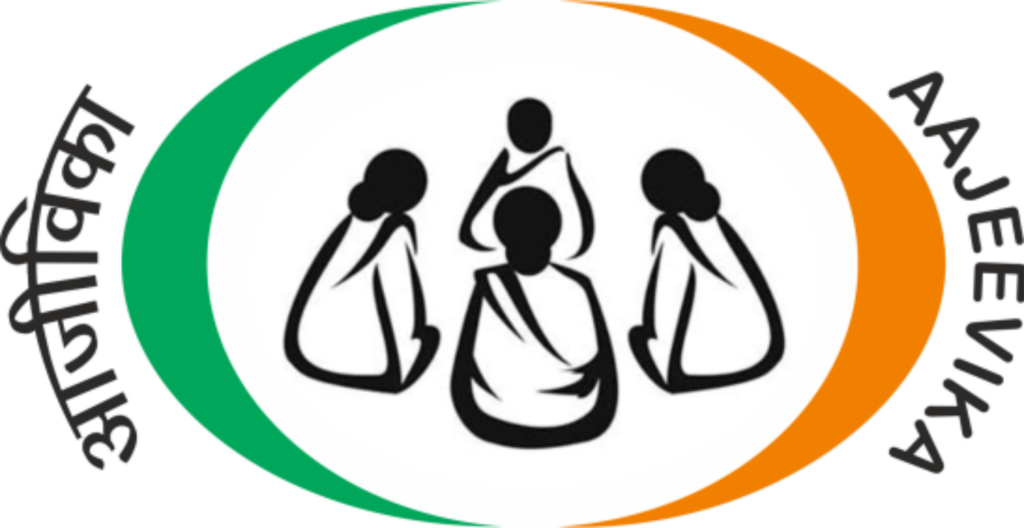About NRLM
The Deendayal Antyodaya Yojana-National Rural Livelihoods Mission (DAY-NRLM) stands as a transformative initiative by the Ministry of Rural Development, Government of India, with the ambitious goal of combating rural poverty. By forming over 10 million Self-Help Groups (SHGs), primarily consisting of women, DAY-NRLM has successfully mobilized poor households to cultivate economic self-sufficiency and develop robust community networks. The program emphasizes on sustainable livelihood enhancement through skilled wage opportunities, focusing on the integration of migrant workers and encouraging diverse employment avenues. Through the facilitation of credit access, DAY-NRLM has significantly augmented household savings and spurred investments in income-generating pursuits. Pivotal to India’s poverty alleviation endeavors, DAY-NRLM’s impact is evident as countless families have transitioned from poverty to prosperous livelihoods, thereby contributing to national economic advancement. This program is not just a mere policy measure but a leap forward, flooring the path for millions to ascend out of poverty and flourish in an evolving economic landscape

Agricultural Inclusion: Women and Migrant workers’ Policy Study
Examining the Efficacy of Public Policy in Enhancing Participation of Minority Groups: A Case Study of Women and Migrant Workers in Indian Agriculture
India’s agricultural sector stands as a testament to diversity and perseverance, where millions toil to contribute to the nation’s food security and economy. Despite the sector’s importance, not all participants stand on equal footing. Minority groups, particularly women and migrant workers, often find themselves at the margins of agricultural policies and practices. This article unfolds a comprehensive study that scrutinizes the effectiveness of public policy in integrating these groups into the very fabric of India’s agrarian landscape.
Abstract
Our research delves into the complex interplay of public policies designed to enhance the participation of minority groups in Indian agriculture. We have adopted a mixed-methods approach to unearth the quantitative effectiveness and qualitative impacts of these policies. By dissecting government reports, policy documents, and census data against insights from interviews and case studies, we aim to present a holistic view of the situation.
Through meticulous examination, we have identified considerable disparities in the inclusion of minority populations within this sector, despite numerous initiatives targeting these challenges. Our findings indicate that merely crafting policies is not sufficient—execution and contextual adaptation are pivotal to truly empower women and integrate migrant workers in agriculture.
Tailoring Interventions for Women in Agriculture
Women form the backbone of many agricultural activities in India, yet the acknowledgment and assistance due to them are scantly reflected in policy execution. Cultural norms, resource accessibility, and lack of representation in decision-making spheres are significant impediments that need rectification. We stress the urgency of designing policies not as overarching panaceas but as custom solutions attuned to the societal fabric of different regions.
The Plight of Migrant Workers
Migrant workers bring vitality to the agricultural workforce; their mobility, however, brings forth socio-economic vulnerabilities, which are compounded by a lack of specific policy support. Inter-state coordination, improved living conditions, and skill development are crucial policy areas that demand urgent attention if we aspire to tap the full potential of this significant workforce segment.
Beyond Numbers: Understanding Socio-Cultural Dynamics
The crux of our research does not lie solely in statistical analysis but also in recognizing the socio-cultural nuances that influence policy effectiveness. The need of the hour is to move past one-size-fits-all policies and progress towards more nuanced, region-specific programs that truly resonate with the needs of the intended beneficiaries.
As thought leaders and policymakers, we must take into account the diverse perspectives and challenges faced by women and migrant workers in Indian agriculture. Our study aims to be a stepping stone in bridging the immense gap between policy intention and its tangible implementation. May this research encourage a reflective discourse and spur decisive action toward an inclusively flourishing agricultural sector.
In an era where inclusive growth has become pivotal to sustainable development, investing in targeted policy reforms for women and migrant workers in agriculture is not just a socio-ethical imperative but also an economic necessity. As our study reveals, significant strides are yet to be made, and it is incumbent upon all stakeholders—policymakers, experts, and advocates for gender equality—to forge a path towards a more equitable agricultural future.
To the policymakers and advocates skimming through these insights, may this article serve as a clarion call for action and a source of enlightened knowledge. For inclusive agricultural policies to bear fruit, they must be nurtured with the seeds of awareness, empathy, and unwavering commitment to change.
Engage with us to further dissect these findings, share your perspective, or illuminate other underserved areas in need of insightful policymaking.